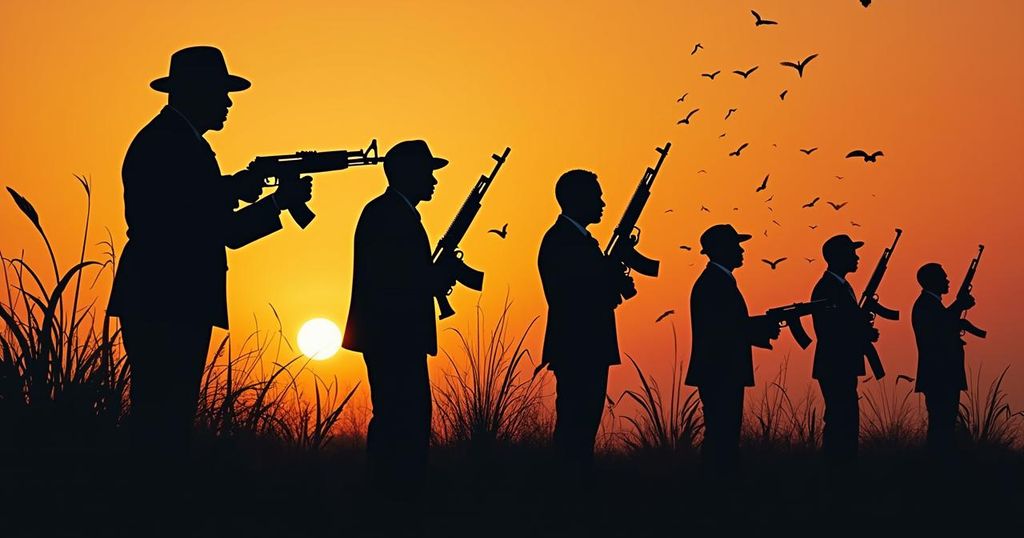Mozambique is set to conduct significant elections that could bring a new, younger president into office for the first time since independence. With a backdrop of high youth unemployment, corruption, and armed conflict, candidates Daniel Chapo, Ossufo Momade, Venancio Mondlane, and Lutero Simango present varying visions for the country’s future. As voters prepare to cast their ballots, the potential for change or continuity hangs in the balance, reflecting longstanding societal divides.
Mozambique is approaching a pivotal moment in its political landscape as citizens prepare to cast their votes in the upcoming elections, which hold the potential to introduce a new generation of leadership. For the first time since the nation’s independence from Portuguese colonial rule in 1975, a president born after this landmark event could assume power. On Wednesday, approximately 17 million of Mozambique’s 32 million residents will participate in a dual presidential and parliamentary election, with crucial local elections taking place across eleven provinces. As President Filipe Nyusi, of the Mozambique Liberation Front (Frelimo), concludes his tenure after eight years, the political atmosphere is ripe for change, despite lingering concerns over issues such as corruption and the ongoing armed conflict in Cabo Delgado province. Nyusi’s administration has faced considerable scrutiny due to the notorious “tuna bond” scandal, resulting in criminal convictions of high-ranking officials and a loss of public trust. Among the candidates vying for the presidency are Daniel Chapo, a fresh political face from Frelimo, Ossufo Momade of the opposition Mozambican National Resistance (Renamo), Venancio Mondlane, an independent candidate backed by a coalition, and Lutero Simango, leader of the Democratic Movement of Mozambique (MDM). Each candidate has articulated their strategies to address pressing national challenges, including the armed insurgency fueled by ISIL-Mozambique, job creation amid high unemployment rates, and climate-related food insecurity. Chapo, 47, positioning himself as a reformer, seeks to distance Frelimo from its tainted past while promising stability and peace in conflict-ridden regions. In contrast, Momade, 63, embodies the historical resistance against Frelimo and appeals to loyal supporters, even as he faces criticism for past electoral losses. Mondlane, 50, captures the youthful electorate’s imagination, emphasizing his commitment to change. Finally, Simango, 64, focuses on economic development initiatives aimed at boosting local job creation. As election day approaches, the discourse among voters illustrates a significant divide; many younger individuals yearn for a departure from the traditional power structures, while some older citizens exhibit nostalgia for the established order. Concurrently, widespread skepticism regarding electoral integrity looms, particularly from opposition parties citing ghost voters on the rolls. The backdrop of these elections includes a fragile security landscape, with the Northern Cabo Delgado province struggling under the grip of violence, displacing over a million residents. According to the World Food Programme, approximately 1.3 million people are facing dire food shortages exacerbated by environmental challenges. Once voting concludes, preliminary results will be released shortly, with official counts expected to be finalized within two weeks, allowing for potential legal challenges to the results amid claims of electoral fraud, further clouding the nation’s political horizon.
Mozambique’s electoral cycle has been influenced by a historical context marked by the long-term governance of the Frelimo party, which has dominated since independence in 1975. The country’s struggle with corruption, particularly visible in the controversial ‘tuna bond’ scandal, has severely impacted public opinion and trust in the government. The ongoing armed conflict in Cabo Delgado, driven by insurgent groups and exacerbated by socioeconomic distress, complicates the electoral landscape, as candidates propose varied approaches to restoring peace and stability. The demographics of the electorate, with a substantial youth population facing unemployment, underscore the urgency of economic reforms and job creation, positioning these elections as a critical juncture for Mozambique’s future.
In conclusion, Mozambique’s upcoming elections serve as a potential turning point in reshaping the political environment and addressing the nation’s pressing issues such as corruption, armed conflict, and economic recovery. The candidacies of both established and new political figures reflect the diverse aspirations of voters, particularly among the youth seeking meaningful change. The outcomes of these elections will not only determine the future leadership but also signal the political direction of Mozambique, navigating the complexities of historical grievances and emerging challenges.
Original Source: www.aljazeera.com






